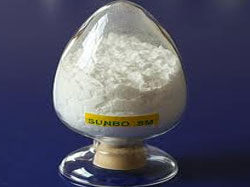![]() : +91 97695 77838
: +91 97695 77838
Retarders for gypsum plaster
We are the producer and exporter for gypsum retarders use to produced plasters of various setting time and enhancing properties. These Retarders for gypsum plaster are an ideal choice for application on internal wall ceilings of brick, block or concrete and allied. This range posses.
Product Details:
| Place of Origin | Maharashtra, India |
Payment & Shipping Terms:
| Price: | FOB USD 3~8 / Kilogram Get Latest Price |
| Minimum Order Quantity: | 1 Kilogram/Kilograms |
| Port: | india |
| Packaging Details: | Packed in 10/20 kg packing |
| Delivery Time: | 15 Days |
| Payment Terms: | L/C,D/P,T/T |
| Supply Ability: | 100 Ton/Tons per Month |
Product Category :- Construction & Real Estate >> Masonry Materials >> Gypsum Powder
Product Details :- Place of Origin Maharashtra, India
Product Name :- Retarders for gypsum plaster
More Keywords :- retarders for plaster of paris,gypsum retarder compound We are the producer and exporter for gypsum retarders use to produced plasters of various setting time and enhancing properties
Detailed Description
PHYSICAL PROPERTIES
| Composition | treated polymers |
| Colour/Form | free-flowing brownish to cream powde |
| Density | 2.6 g/cm³ |
KEY PROPERTIES :- cost-effective thixotropic agent for mineral-based construction systems Improved ease of application and surface smoothness Increased sag resistance and softness Decreased pumping pressure and stickiness on tools Anti-sedimentation and anti-bleeding Stability against bacteria and enzymes .
Plasters, Renderings and Stucco
1- Lime cement plaster
2- EIFS plaster and adhesive system
3- Emulsion plasters/synthetic stucco
4- Skim coats
5- Gypsum plasters
6- Mortars
Joint fillers
Plasterboard jointing compounds Gypsum, latex and cement pointing compounds .
Screeds and Underlayments
Self leveling flooring compounds Cementitious and gypsum anhydrate screeds .
LEVELS OF USE
The usage and dosage of retarder will depend on nature and purity of gypsum plaster The level of addition depends on the desired consistency of the system. Typical levels range from 0.1% - 3.0% additive, based on total formulation. In plasters typically 0.1% - 0.3% are used can be combined with other thickening agents.
Potential Health Effects
Inhalation :-
Acute inhalation not expected to result in adverse effects.
Prolonged inhalation may cause respiratory tract irritation.
Effects include: No other effects expected unless listed below.
Eye Contact
Eye contact causes irritation.
Skin Contact
Skin contact causes irritation.
Prolonged skin contact can result in irritation causing redness and itching.
Skin Absorption
Not expected to be harmful if absorbed through the skin.
Ingestion
Harmful if ingested.
Effects include: Nausea, pain, vomiting, diarrhea and digestive tract irritation.
FIRST AID MEASURES
Skin Contact
Wash with soap and water. If discomfort or irritation persists, consult a physician. Remove contaminated clothing and wash before reuse.
Eye Contact
Flush eyes with water for at least 15 minutes while holding eyelids open. If discomfort or irritation persists, consult a physician.
Ingestion
Rinse mouth with water. Give the person one or two glasses of water and then consult physician.In extreme emergency, induce the victim to vomiting under professional supervisions.
Inhalation
No hazard in normal industrial use. If symptoms develop, get fresh air, and if symptoms persist, consult a physician. If breathing has stopped, give artificial respiration then oxygen if needed.
HANDLING AND STORAGE
Precautionary Measures
Avoid contact with eyes, skin and clothing.
Do not take internally.
Practice good personal hygiene to avoid ingestion.
Use only with adequate ventilation.
Wash clothing before reuse.
FOR PROFESSIONAL USE ONLY. KEEP OUT OF CHILDREN’S REACH.
EXPOSURE CONTROL /PERSONAL PROTECTION
Engineering Measures
Ventilation must be adequacy.
Personal Protective Equipment
Common rules:D o not eat, drink and smoke at working place. Avoid to longtime contact the substance and breathe the dust of the substance. Change the contaminated clothing and wash it.
Respiratory Protection
Necessary
Skin Protection
Rubber or other impervious gloves should be worn to prevent skin contact.
Eye Protection
At minimum, safety glasses with side shields should be worn where exposure to excessive dust or spry is likely.
Work/Hygienic Practices
Use good personal hygiene practices.
None beyond those noted above.
STABILITY AND REACTIVITY
Storage
Keep away from the heat, direct sunlight and fire.
Conditions To Avoid
Strong oxidant.
Hazardous Decomposition Products
This substance will not decompose hazardously.
OTHER INFORMATION
To the best of our knowledge, the information contained herein is accurate. However,Our Company does not assume any liability whatsoever for any of its completeness of the information contained herein. Final determination of suitability of any material is the sole responsibility of the user. All materials may present unknown hazards and should be used with caution. Although certain hazards are described herein, we cannot guarantee that there are the only hazards which exist



